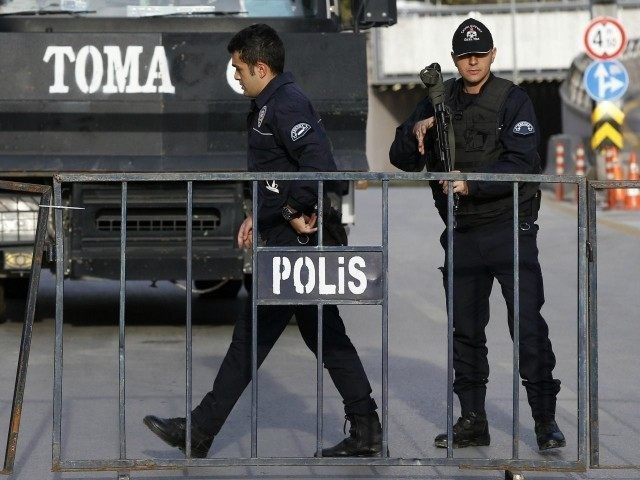The Turkish government has begun applying closer scrutiny to immigrants from Muslim regions of Russia, raiding their homes and detaining them to ensure Islamic State sympathizers and other jihadis are not attempting to operate openly in the terror-besieged country.
While most of the urban areas of Russia are Christian, the regions of Chechnya and Dagestan boast significant Muslim populations, and the Islamic State has resorted to recruiting heavily in those areas. As Reuters notes, Muslims looking to live outside of the scope of Moscow have traditionally looked to Turkey as a new home. Now, they are facing growing police observation in Turkey, as well, following of string of attacks traced back to natives of Russia and Central Asia.
“Turkish police have raided the homes of Russian-speaking immigrants in Istanbul, detained many and expelled others, according to interviews with Russian Muslims living in the city,” Reuters reports. The agency interviewed some Russian Muslims in Turkey, who confirmed that many in their community had been arrested or detained for questioning, and that police had heightened their presence in their neighborhoods.
In Istanbul, Turkish police confirmed the anecdotal evidence of increased scrutiny: “Our operations are not limited to specific parts of Istanbul but all across the city. It is about foreigners without the necessary paperwork, passport or ID. We fight crime wherever it may be.”
Turkey has good reason to be suspicious of Russian nationals. The Islamic State has actively targeted regions like the aforementioned Dagestan and Chechnya, as well as other Muslims regions like Ingushetia and Kabardino-Balkaria, for recruitment. They have experienced moderate success. A 2016 report cited Chechen government officials stating that at least three thousand Russian nationals from that region had left to Iraq and Syria to fight with the Islamic State. So many Chechen extremists left the region that the move contributed to a drop in terrorist activity in Chechnya.
Those not in Iraq and Syria end up in Turkey or farther west. The summer 2016 terrorist attack on Atatürk Airport in Istanbul, for example, was orchestrated by Russian, as well as Uzbek and Kyrgyz, terrorists. Among the most famous Chechen terrorists are Tamerlan and Dzhokhar Tsarnaev, the jihadists responsible for the Boston Marathon bombing in 2013.
Reuters suggests that newfound scrutiny on Russian communities is a sign that the Russian government has gotten closer to Turkey and does not find any evidence suggesting that Russia opposes the detention and investigation of its nationals in Turkey. Russia and Turkey have struggled to maintain peaceful and cooperative relations, even through the assassination of Russian Ambassador Andrei Karlov in Ankara.
Such a close bond took more than a year to repair after Turkey shot down a Russian jet that had repeatedly violated Turkey’s airspace while on a mission in Syrian in 2015. Officials dismissed the possibility of cooperation in Syria for months after the incident until President Recep Tayyip Erdogan survived a coup attempt in the capital in July 2016. His Russian counterpart, Vladimir Putin, was among the first world leaders to call and affirm his support for Erdogan. The two used the failed coup as a catalyst for rapprochement and, by October 2016, Putin was in Ankara to mend fences with Erdogan.
In an interview with Saudi outlet al-Arabiya this week, Erdogan reiterated his support for Putin. “The Relationship between Russia and Turkey may worry some, maintaining friendly relationship between the two countries is very important for the future of the region and its stability,” he told the newspaper.
Turkey’s state news outlet, Anadolu Agency, ran a column suggesting this grace period may soon be over, however, accusing Russia of being too helpful to Syrian Kurdish separatist groups that Turkey considers terrorist entities. “When Turkey takes control of al-Bab, it will cease to have any further need for Russia,” the column speculates. “Trump had a quite friendly conversation with Erdogan. He implied that the U.S. would get back on ground against Iran and Daesh.” Despite this, the Anadolu columnist chastises Russia for “threatening instead of inspiring confidence” and working with the Syrian Kurds.

COMMENTS
Please let us know if you're having issues with commenting.